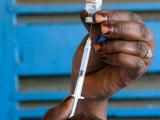Dec 13, 2001 (CIDRAP News) The US House of Representatives on Wednesday overwhelmingly approved a bill authorizing about $2.9 billion in spending on preparedness for bioterrorism and other public health emergencies.
The measure authorizes more than $1 billion in grants to state and local governments and other health agencies and $450 million for the Centers for Disease Control and Prevention (CDC), according to Rep. Billy Tauzin, R-La., coauthor of the bill and chair of the House Energy and Commerce Committee.
"We are today stepping up to the profound threats of terrorism and other public health emergencies. We do so by combining smart, innovative policy with additional resources to prepare the country for bioterrorist threats and to improve our ability to respond effectively and quickly to such threats when they arise," Tauzin said in a floor statement that was published on the Energy and Commerce Committee Web site.
The Public Health Security and Bioterrorism Response Act of 2001 was passed on a vote of 418-2, according to a press release from the committee. Committee members unveiled the bipartisan bill, coauthored by Rep. John Dingell, D-Mich., Dec 6. As described in the press release and an accompanying summary, the bill:
- Authorizes more than $1 billion in grants to states, local governments, and other public and private healthcare facilities and other agencies to improve planning and preparedness, enhance laboratory capacity, train healthcare personnel, and develop new drugs, therapies, and vaccines
- Authorizes $450 million for the CDC to improve its capability to deal with public health threats, renovate its facilities, and improve its security
- Authorizes more than $1 billion for the Department of Health and Human Services to expand the national stockpile of drugs, vaccines, medical devices, and medical supplies
- Establishes a national database of dangerous pathogens, imposes new registration requirements on possessors of the 36 most deadly biological agents, and adds other new security requirements
- Provides $100 million to enable the Food and Drug Administration to hire more inspectors for food imports and develop new methods to detect food contamination
- Authorizes more than $100 million for vulnerability studies and emergency response plans to protect drinking water systems
The bill has been described as a companion to the Senate authorizaton bill introduced recently by Bill Frist, R-Tenn., and Edward Kennedy, D-Mass. The Frist-Kennedy bill would authorize about $3.2 billion for bioterrorism preparedness. Action on the bill has been delayed because of partisan disagreement on its cost.
Authorization legislation is a prerequisite for spending government money, but the actual funds to be spent must be appropriated separately. The House and Senate have both voted to appropriate funds for bioterrorism preparedness as part of emergency spending bills approved recently in the wake of the Sep 11 attacks. The Senate on Dec 7 approved an amendment to the 2002 defense appropriations bill that provides $3.1 billion for antibioterrorism activities. On Nov 28 the House approved a $20 billion spending package that included about $2 billion for bioterrorism.


















